Search
Remove Ads
Advertisement
Summary 
Loading AI-generated summary based on World History Encyclopedia articles ...
Search Results

Article
Third Gender Figures in the Ancient Near East
In the ancient Near East, there was a social standard by which men were ideally expected to behave. In the 21st century CE, expectations still exist, albeit in different forms. Normative masculinity through ancient Mesopotamia typically concerned...
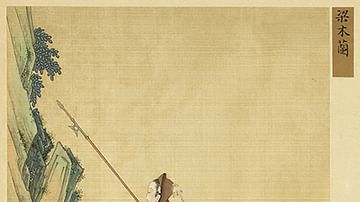
Article
Gender & Identity in Mulan: Text & Commentary
The legend of Mulan, now world-famous thanks to the Disney films of 1998 and 2020, is the story of a young girl who disguises herself as a man to take her aged father's place as a conscript in the army and so preserve the family honor. The...
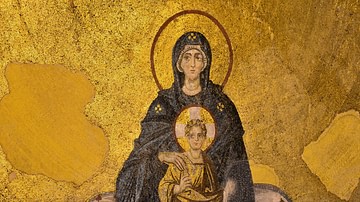
Article
Ancient Christianity’s Effect on Society & Gender Roles
Christianity began as a sect of Judaism in Judea in the 1st century CE and spread to the cities of the Eastern Roman Empire and beyond. In these cities, non-Jews, Gentiles, wanted to join the movement, and these Gentile-Christians soon outnumbered...
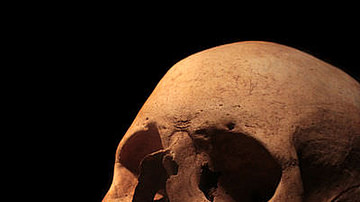
Image Gallery
A Gallery of Ghosts, Demons, Spirits & Monsters
Ghosts, demons, spirits, and monsters have been haunting humanity for at least 3,500 years. The so-called “Ghost Tablet” (c. 1500 BCE), from ancient Babylon, depicts a woman leading a ghost to the underworld and amulets from earlier periods...
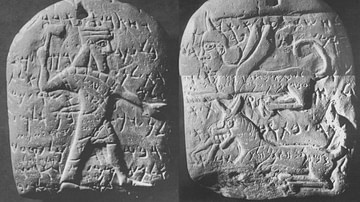
Definition
Arslan Tash Amulet
Dated to the 7th century BCE, the Arslan Tash amulet (AT1) was discovered in Arslan Tash, Syria and contains the writing of Phoenician, magic incantations. The limestone plaque includes a variety of features: incantations perceived to prevent...

Image
Swiss Colonial Human Trafficking
Figurines depicting the sale of an enslaved person. Menschenhandel, manufactory Kilchberg-Schooren, around 1775, painted porcelain. On display at the National Museum Zurich in the Swiss Global Entanglements exhibition from 13.9.2024 - 19.1.2025...
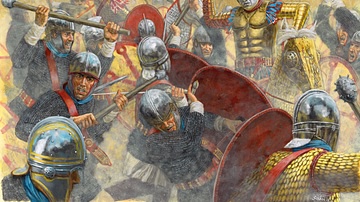
Article
Legions of Late Antiquity
The Roman army underwent dramatic changes in Late Antiquity. Civil war and external conflicts led to the creation of new legions while existing legions were either split or disbanded. Although there was an increase in the number of legions...

Image
Winged Hittite Griffin-Demons
Relief orthostat (stone slab at the base of a wall) depicting two winged griffin demons, depicted as bird-headed with a human body. From Carchemish, Turkey. Dated to the Late Hittite period, 9-7th century BCE. Museum of Anatolian Civilization...
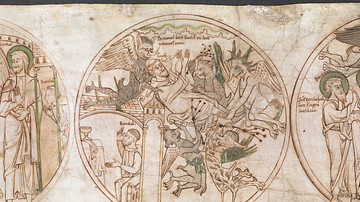
Image
Saint Guthlac Tormented by Demons
Saint Guthlac (c. 674 to 11 April 714) being carried aloft and whipped by demons. Roundel 7 of Life of Guthlac (the Guthlac Roll, or Vita Sancti Guthlaci), a manuscript written in the Benedictine abbey of Crowland, Lincolnshire, 1175-1215...
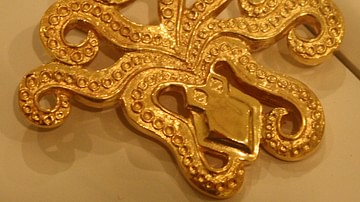
Definition
Gold in Antiquity
Gold, chemical symbol Au (from the Latin aurum meaning 'shining dawn'), is a precious metal which has been used since antiquity in the production of jewellery, coinage, sculpture, vessels and as a decoration for buildings, monuments and statues...